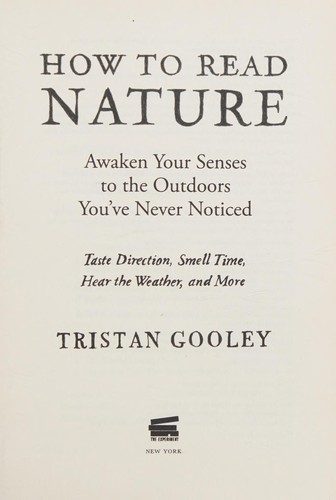Nibsy reviewed How to read nature by Tristan Gooley
Changing perspective by reconnecting with nature
4 stars
These days, people spend a huge amount of time in front of screens, largely disconnected from nature. Author Tristan Gooley implores his readers to back away from their computers, take a walk outside, and start becoming familiar with the natural world around them. By becoming familiar with nature, its inhabitants, its rhythms, its interconnectedness, its beauty, and its conflicts, one begins to appreciate their own place within it. It allows for a new perspective on the world and a new way of thinking. Merely glancing at the sky and observing what clouds are present, what direction they're moving, and how they develop over time allows you to make reasonably accurate short-term weather forecasts. Knowing local plant species offers natural foraging opportunities, or insights into the animals that are present. Observing wildflowers can tell you the time of day; observing the trees can tell you the season or the month. Learning how to listen not just with your ears, but with your entire body, provides a novel sensory experience that enhances your perception of the world.
Gooley is an expert in natural navigation, which means he knows how to get around in the world without a handheld GPS unit or even a map and compass. Instead, he reads the signs that nature provides as clues to establish his current position and possible routes he could follow to get to where he wants to go. Who among us in today's modern world understands their surroundings so well? But this book is not really about navigation (but it's that, too); it's about reconnecting with nature, developing a more natural worldview, and thinking about the world as it naturally exists. It's about being present in the moment and living a fuller, more meaningful life. This is an excellent book and one that all of us—city and rural dwellers, alike—should read for the sake of our own well-being, but also for the well-being of our over-exploited and misunderstood natural world.

